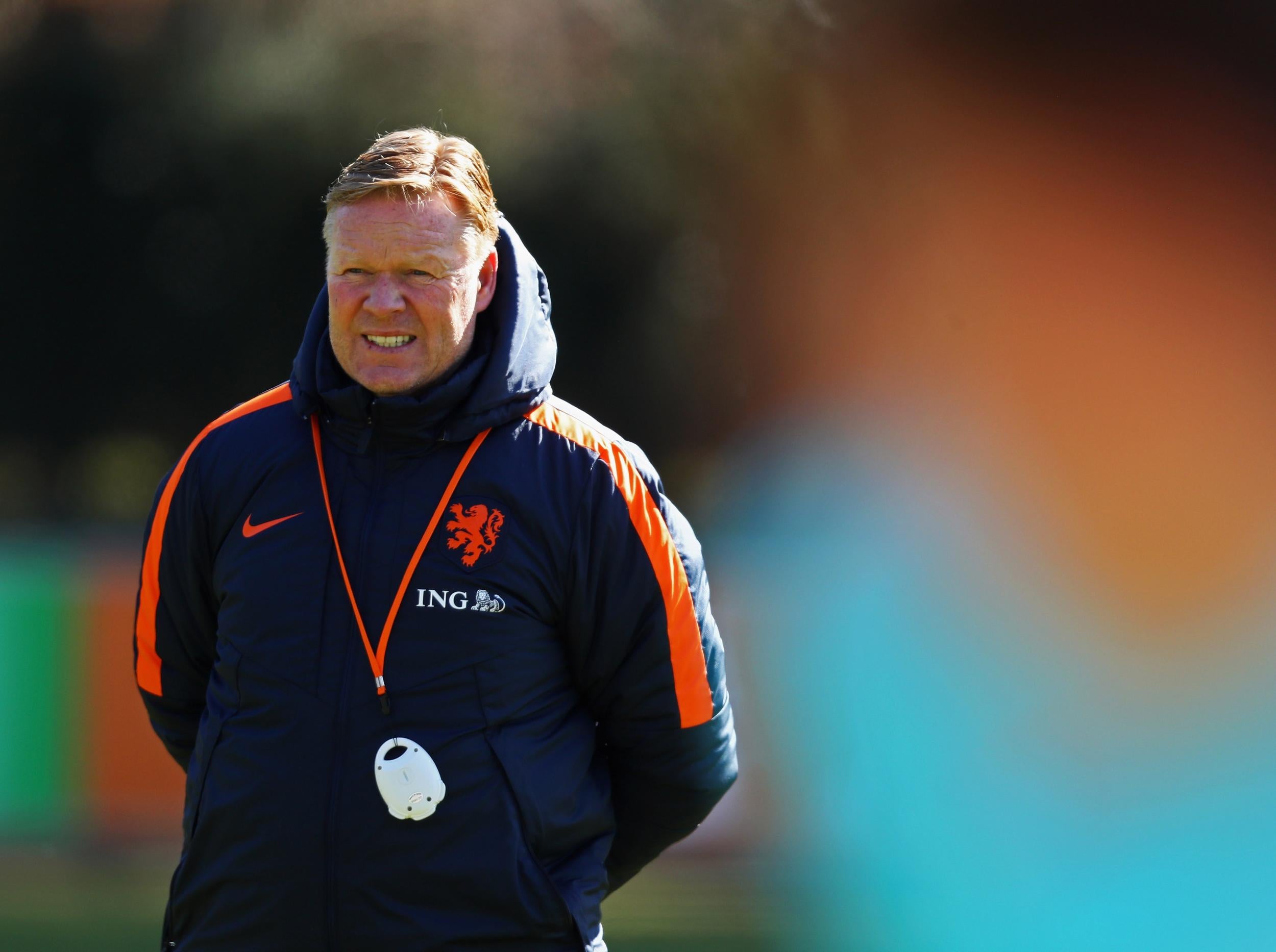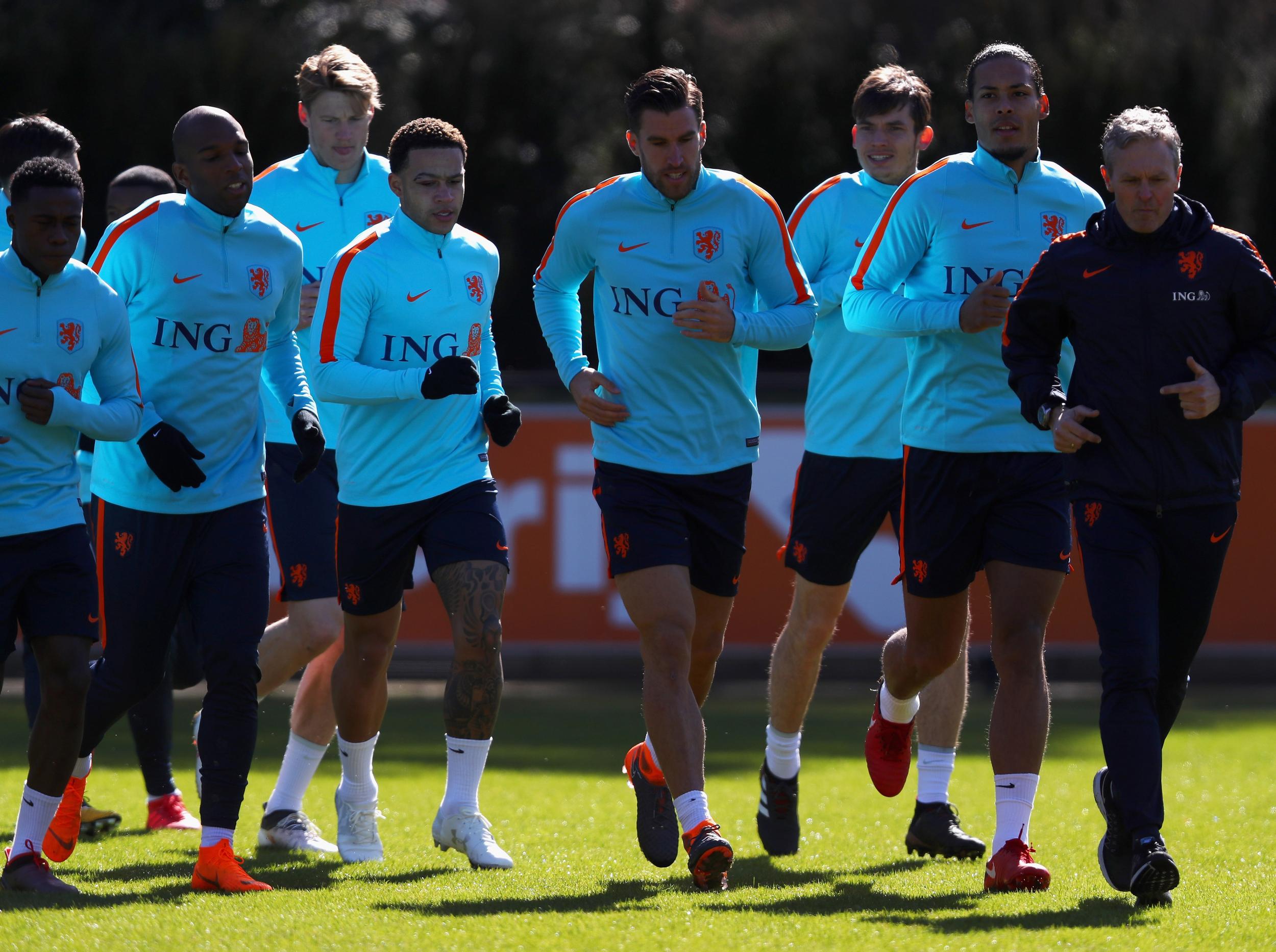Ronald Koeman left rifling through the rubble after the collapse of Dutch football’s once impressive empire
The Netherlands will be absent from their second consecutive international tournament this summer and the stars of old aren't there to dig them out

It is June 1988, house music is on the rise in Britain and denim jackets fill the terraces. A blond-haired Ronald Koeman has just helped Holland to victory at the European Championships; a triumph crowned by one of the most memorable goals ever scored at a major tournament.
Now 30 years on from Marco van Basten’s iconic volley in the final against the Soviet Union in Munich’s Olympic Stadium, Koeman is the man entrusted with trying to restore the Oranje to their former glories.
A World Cup without Holland is like fish but no chips, Morecambe without Wise, but having failed to qualify for this summer and Euro 2016 in France, the enormity of the task facing Koeman is not lost on the decorated former Barcelona defender.
“It is a big and difficult challenge. Everybody knows this and it is going to take time,” said Koeman addressing the media ahead of Friday’s friendly with England in Amsterdam.
And it is not only the Dutch team who need to restore their battered reputation but Koeman himself after his tenure as Everton manager ended in humiliation when he was sacked last October after squandering the best part of £150m.
“After Everton, where everyone knew it was really difficult towards the end, I needed time to focus again. I needed to recover. I have had a good time to relax. I work because I want to work,” continued Koeman. “I wanted to be with the national team and this was the right time to try the challenge.”
It is a job Koeman has had flirtations with in the past and he has never forgiven the Dutch federation for being overlooked in favour of Guus Hiddink when old adversary Louis van Gaal stepped down having led Holland to the semi-finals of the 2014 World Cup in Brazil.

But even if Koeman says the time is right to finally take up the role he has always craved, it will need a Herculean effort to transform the Dutch into a world force again.
While neutral fans will mourn the absence of Holland and their colourful band of followers in Russia, the squad Koeman has inherited is a world away from those who have provided so much joy in the past.
The famous orange jerseys remain as recognisable as ever but those who fill them are a few rungs below the likes of van Basten, Ruud Gullit, Dennis Bergkamp and the great Johan Cruyff, whose name adorns the arena where England will step out, on the class ladder.
Arjen Robben, who announced his retirement after Holland’s World Cup failure, is the last Dutchman still capable of illuminating the Champions League.

The fact Koeman has admitted he is open to recalling a 34-year-old Robin van Persie once he resumes full fitness lays bare the lack of quality he has at his disposal. Indeed, Memphis Depay is the only Dutch forward who has scored a single goal in any of Europe’s top five major leagues this season.
The decline in standards in the Eredivisie is undoubtedly a major factor in the national team’s slide into obscurity and Dutch clubs simply cannot compete with the wages and transfer fees on offer from their European counterparts.
Talented youngsters are regularly poached from the Dutch system by clubs in England, Spain and Italy, players such as Nathan Ake and Timothy Fosu-Mensah, both 16 when they were snared by Chelsea and Manchester United respectively.
Ironically Ake, now at Bournemouth after a £20m summer move from Stamford Bridge and the south coast club’s standout performer this season, will be one of the rising stars Koeman will centre his revolution around.
“This is the moment when we have to build up again for the up-coming seasons, for the next tournament and it starts with this game,” said Ake of the England clash. “The mood is that we want to get back up there. There’s a new manager now, we’ve got a lot of young players and we want to build for the future again.”
Dutch supporters and nostalgia lovers everywhere hope Ake’s optimistic words ring true, but if Koeman can revitalise the nation who have gone from Total Football to total flops, it would be a bigger achievement than any of the countless trophies he lifted during his illustrious playing career.
Join our commenting forum
Join thought-provoking conversations, follow other Independent readers and see their replies
Comments
Bookmark popover
Removed from bookmarks